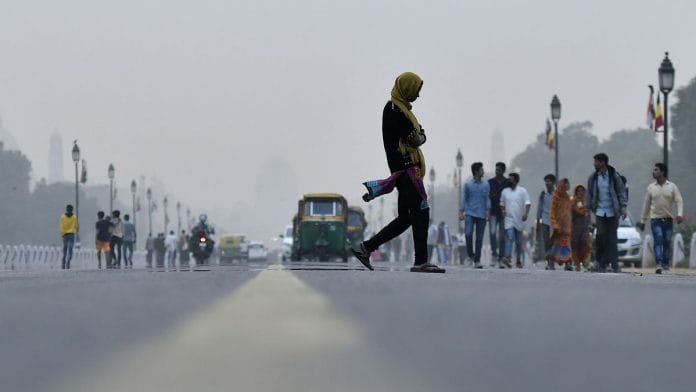Many advocates of a Green New Deal insist that air pollution and racial justice are related and must be addressed simultaneously. In 2018, they point out, researchers from the Environmental Protection Agency concluded that black Americans suffer disproportionately from exposure to emissions.
More recent research does not merely provide fresh details about the relationship between environmental degradation and racial justice. It adds disturbing new findings about apparent inequities across racial lines. In brief: African-Americans and Hispanics are subject to far more air pollution than they cause by their consumption choices. By contrast, white people are subject to far less air pollution than they cause by their consumption choices.
Of all sources of air pollution in the U.S., the most harmful is fine particulate matter. Though estimates vary, it is often said to cause more than 100,000 premature deaths each year. It should be no wonder, then, that the EPA has long focused on reducing exposure levels.
Air pollution is often attributed to “corporations,” but it is made possible by the actions and choices of consumers — driving cars, using electricity, and purchasing goods and services. The results include unacceptably dirty air and numerous premature deaths.
Also read: Delhi’s air pollution is probably making you sad
Does race have anything to do with that?
A large research team, led by Christopher Tessum of the University of Washington, posed two questions that had never been analyzed at the same time. 1. Are different racial groups subject to different levels of particulate matter? 2. To what extent are different racial groups responsible for consumption activities that produce emissions of particulate matter?
With a sophisticated analysis of a huge amount of data, the researchers find that on average, African-Americans are exposed to relatively high levels of the pollutant — about 21 percent higher than the overall national average. At the same time, they find that adjusting for population, the consumption choices of African-Americans cause about 23 percent lower emissions than the national average.
In sum, African-Americans are hit especially hard by air pollution, even though they cause relatively little of it.
The story is broadly similar for Hispanics, who are exposed to about 12 percent higher levels of particulate matter than the overall national average. Again adjusting for population, they are responsible for 31 percent lower emissions than the national average.
Whites, by contrast, are exposed to about 7 percent lower levels than the overall national average, while their consumption activities are responsible for 12 percent higher emissions than the national average.
That means that whites suffer relatively less from air pollution, even though they are disproportionately responsible for it.
Tessum and his colleagues conclude that there is a serious problem of “pollution inequity.” The reason is that “pollution is disproportionately induced by the racial-ethnic majority and disproportionately inhaled by racial-ethnic minorities.”
That is a provocative claim. But it is hard to know what to make of it without digging a lot deeper into the data.
The researchers do not address an obvious question: Might their results reflect income rather than race? After all, consumption is closely correlated with income.
On average, whites make significantly more money than African-Americans and Hispanics. So it is not exactly surprising that if we adjust for population, the consumption activities of whites produce unusually high levels of air pollution. On that count, the real driver might well be income, not race as such.
It remains to explain why African-Americans and Hispanics are exposed to relatively higher levels of air pollution. A major factor may be geography: If members of those groups are more likely than whites to live in areas that are urban or otherwise suffering from large amounts of high-polluting activity, they will be subject to unusually high levels of particulate matter for exactly that reason.
In sum, the research findings might be best explained by reference to economic inequality and geography. If so, it is not right to think that the central factor behind “pollution inequity” is race — at least not in any direct sense, though inequality and geography are of course entangled with race.
To come to terms with the findings, we need to know more details. But it is more than troubling to learn that groups that are subject to the highest levels of pollution are less responsible for it — and that groups that are most responsible are less likely to suffer from it.
First and foremost, air pollution is a public health problem. But whatever the precise role of race, it is also a source of injustice.- Bloomberg






